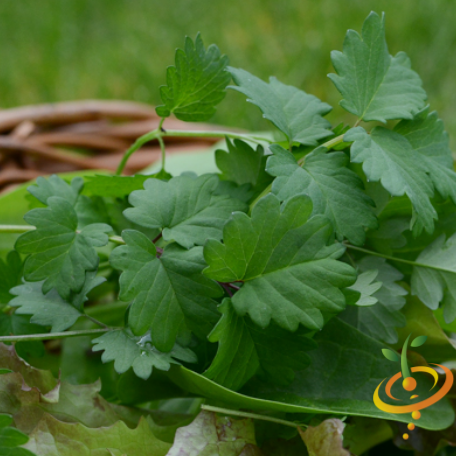- From $299 USDUnit price /Unavailable
Description
Genovese Basil, also called Sweet Basil, has large, tender, fragrant leaves and sweet, spicy anise flavor. The best basil for pesto. The flower spikes dotted with tiny white edible flowers make a delicate garnish or salad addition. This heat-loving herb is a reliable producer and all-around great Italian basil.
Genovese Basil is a classic! It's prized for being sweet with undertones of a spicy flavor. You can't beat its aroma. These plants grow anywhere from 18"-24" inches and is the variety of choice for making pesto and adding to pizzas.Use it in pesto, pasta and pizza sauce, Caprese salad, antipasto, curries, cocktails, smoothies, dressing, herb butter, oil, vinegar, and herbal tea.
Harvest the leaves and stems from the top part of the plant, and pinch off edible flower buds as they appear, which prevents the leaves from turning bitter, and signals the plant to branch out and grow more leaves, making a bushier plant.
The more you harvest, the more it grows!
- Sweet and spicy
- Grows 2'-3' tall
- Besto for pesto
- Good for containers
- Tons of medicinal benefits!
As a medicinal herb, Basil has been used internally to treat anxiety, colds, colic, cough, depression, diarrhea, fever, flatulence, flu, indigestion, insomnia, intestinal parasites and worms, exhaustion, gastric pain, gonorrhea, lactation problems, migraine headache, nausea, stomach cramps, sore throat, and vomiting, and externally to treat acne, insect bites and stings, loss of smell, skin problems, snake bites.
⚠️ Do not use medicinally while pregnant.
⚠️ Medicinal properties are presented as information only, and are not a recommendation or prescription for use. Consult a medical professional before using any herb medicinally.
As a companion plant, it attracts hummingbirds, pollinators, and beneficial insects, and repels asparagus beetles, cabbage moths, cabbage white fly, cabbage worms, carrot rust fly, flies, maggots, mice, mosquitoes, spider mites, thrips, and tomato hornworms.
Shop all Basil Seeds Shop Good Companion Plants for Basil 📚 Grow Guide: Basil

What is Genovese Basil?
The most commonly used basil variety for making pesto, you can harvest these leaves as soon as they are large enough to consume. Genovese basil is also known as "Sweet Basil" and a common ingredient to all Italian dishes. The leaves are spoon shaped, glossy and a dark green shade. It grows best in organic-rich and well drained soil and is an easy to grow annual herb that thrives in areas that remain above 50 degrees Fahrenheit.

Health Benefits of Genovese BasilGenovese basil is a known health tonic for expecting mothers and when mixed with tea it increases lactation in mothers. It is also a nerve tonic and young children are sometimes encouraged to chew on the leaves of basil because it stimulates brain cells and can increase memory.

Ways to Consume Genovese BasilThe most popular use is in italian dishes and sauces, especially in genovese sauce and pesto. Genovese Basil goes great in caprese salads and on raw tomatoes for a light, healthy "summery" treat. Mix basil leaves with olive oil and freeze in ice-cube trays for flavored oils when cooking.

See Basil Recipes & Growing Tips on our Pinterest Board
Shop all Basil Seeds Shop Good Companion Plants for Basil 📚 Grow Guide: Basil - From $299 USDUnit price /Unavailable
Description
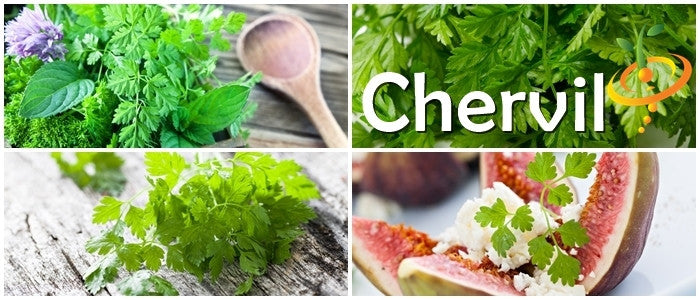
Chervil, also called French Parsley and Garden Chervil, is an ancient aromatic annual in the parsley family, with similar fern-like leaves, tiny white flowers, and a sweet flavor that’s a delicate mix of parsley, anise, and pepper. Leaves, stems, seeds, and flowers are all edible. It prefers growing in part shade in moist soil with cool temps, so it’s good for indoor gardens or fall/winter gardens in mild climates. An important ingredient in fines herbes, along with chives, parsley, and tarragon, used extensively in French gourmet cooking. Loses its flavor when dried, so chop or chiffonade to add a freshness to salads, dressings, herb butter, sauces, seafood, peas, poultry, green beans, carrots, eggs, and herbal tea.
As a companion plant, it attracts pollinators and beneficial insects, and repels ants, aphids, slugs, and snails.
As a medicinal herb, Chervil has been used internally to treat arthritis, bronchitis, congestion, cough, gum disease, hiccups, low blood pressure, menstrual cramps, skin problems, and swelling, and externally to treat painful joints, tired eyes, and wounds.
YIELD Medicinal properties are presented as information only, and are not a recommendation or prescription for use. Consult a medical professional before using any herb medicinally.
- Parsley-anise-pepper flavor
- All parts are edible
- Good for indoor gardens
- Good for containers
SEED PLANTING TIPS
- Botanical name: Anthriscus cerefolium
- Life cycle: Herbaceous annual
- Hardiness zones: 3-10
- Planting season: Spring, fall
- Days to maturity: 40-60 days; can begin harvesting when 6" tall
- Depth to plant seeds: 1/4" deep
- Days to germinate (sprout): 14-28 days
- Germination soil temps: 55F-65F
- Spacing between plants: 9"-12" apart
- Spacing between rows: 18"-24" apart
- # of plants per sq. ft.: Appx. 1 plant per sq. ft.
- Soil types: Sandy, loamy, rich, moist, well-drained
- Soil pH: 6.0-7.5
- Sun needs: Full sun, part shade, full shade
- Water needs: Average
- Cold stratify: No
- Frost tolerant: Yes
- Heat tolerant: No
- Drought tolerant: No
- Deer resistant: Yes
- Culinary use: Yes
- Medicinal use: Yes
Good companion plants: Broccoli, Carrot, Cilantro/Coriander, Dill, Lettuce, Mint, Radish, Yarrow
More facts about Chervil:
- Pregnant women were bathed in an infusion of it; a lotion of it was used as a skin cleanser; and it was used medicinally as a blood purifier.
- It was also claimed to be useful as a digestive aid, for lowering high blood pressure, and, infused with vinegar, for curing hiccups
See Chervil Recipes & Growing Tips on our Pinterest Board
Follow SeedsNow.com's board Chervil on Pinterest. - From $299 USDUnit price /Unavailable
Description
- Also known as Allium Scoenoprasum. A perennial plant that grows narrow, grass-like leaves that have a mild onion-like flavor
- Chives are rich in vitamins A and C, contain trace amounts of sulfur, and are rich in calcium and iron
- Used for many culinary creations
- Perfect for containers and small spaces
- The plant will grow to about 12" tall
-
Days to Maturity | 80 days
-
Chives | Chives are grown best in cooler weather, are cold hardy and usually are planted early in the spring. Sow your chive seeds directly into the soil as soon as it is workable and at least 60 degrees F.
Click here for complete Chives grow guide
If you like Chives, try growing Scallions.
See Chive Recipes & Growing Tips on our Pinterest Board
Follow SeedsNow.com's board Chives on Pinterest. - Also known as Allium Scoenoprasum. A perennial plant that grows narrow, grass-like leaves that have a mild onion-like flavor
Cilantro/Coriander, Slow-Bolt (splits)
From $299 USDUnit price /UnavailableDescription

Cilantro is the most popular leafy aromatic herb with a tangy citrusy-parsley-like flavor, used in Latin and Asian cuisines.
Coriander is the dried seed, whole or powdered, with an earthy, floral flavor used as a spice in Indian cuisine. Grow it just for the seeds or the tiny pinkish flowers, which are quite sweet.
Cilantro prefers cool weather, and this slow-bolt variety will tolerate a bit more heat, putting out more leaves for a longer time before it starts bolting out tasty flowers and Coriander seeds.
Leaves, stems, flowers, seeds, and root of this fast-growing herb are all edible. It also likes shady spots, so a good one to grow indoors.
- Citrusy-parsley-like flavor
- All parts are edible
- Grows 1'-2' tall
- Good for indoor gardens
As a companion plant, it attracts pollinators and beneficial insects, and repels aphids, carrot rust fly, grasshoppers, mosquitoes, potato beetles, and spider mites.As a medicinal herb, Coriander has been used internally to treat anxiety, arthritis, bad breath, colic, constipation, diabetes, diarrhea, flatulence, indigestion, inflammation, insomnia, lack of appetite, nausea, nervousness, pain, stomach cramps, and urinary tract infections (UTIs), and externally to treat rheumatism, headache, joint pain, and tired eyes.
⚠️ Medicinal properties are presented as information only, and are not a recommendation or prescription for use. Consult a medical professional before using any herb medicinally.
Good companion plants: Anise, Asparagus, Basil, Broccoli, Brussels Sprouts, Cabbage, Carrot, Celery, Chervil, Collards, Cumin, Dill, Kale, Kohlrabi, Lemongrass, Lettuce, Mint, Mustard, Oregano, Parsley, Parsnip, Pea, Potato, Rutabaga, Spinach, Squash, Tomato, Turnip, Zucchini
More facts about Cilantro/Coriander:
- This slow-bolting strain is grown primarily for its broad, deep green, celery-like, pungent foliage.
- Used in Oriental and Mexican cuisine.
- Use seed to flavor meats, pickles and baked goods.
- Coriander contains antioxidants. It has also been used as a folk medicine for the relief of anxiety and insomnia. Coriander has also been documented as a traditional treatment for diabetes.
See Cilantro/Coriander Recipes & Growing Tips on our Pinterest Board
Follow SeedsNow.com's board Cilantro on Pinterest. - From $299 USDUnit price /Unavailable
Description

- Annual
- 3 ft. plant with strongly aromatic foliage, stems, and heads. Excellent for pickling
- Days to Maturity | 65 days
Additional Details
Dill has a very long history of herbal use going back more than 2,000 years. The seeds are a common and very effective household remedy for a wide range of digestive problems. An infusion is especially efficacious in treating gripe in babies and flatulence in young children. The seed is aromatic, carminative, mildly diuretic, galactogogue, stimulant and stomachic.
Other Medicinal Properties
Dill is also used in the form of an extracted essential oil. Used either in an infusion, or by eating the seed whole, the essential oil in the seed relieves intestinal spasms and griping, helping to settle colic. Chewing the seed improves bad breath. Dill is also a useful addition to cough, cold and flu remedies, it can be used with antispasmodics such as Viburnum opulus to relieve period pains. Dill will also help to increase the flow of milk in nursing mothers and will then be taken by the baby in the milk to help prevent colic.
See Dill Recipes & Growing Tips on our Pinterest Board
Follow SeedsNow.com's board Dill on Pinterest. - Annual
- From $299 USDUnit price /Unavailable
Description

- Perennial
- Hardy plant with pungent, oval leaves and purplish pink flowers
- Use fresh or dried in sauces and soups
-
Days to Maturity | 90 days
Additional Details
Hippocrates used oregano as an antiseptic, as well as a cure for stomach and respiratory ailments. It is still used today in Greece as a palliative for sore throat. Oregano is also high in antioxidant activity, due to a high content of phenolic acids and flavonoids.
Parsley - Dark Green Italian Giant
From $299 USDUnit price /UnavailableDescription

- Finely cut dark green leaves
- Flat leaves
- Use this parsley for garnishing, and culinary decoration
- Tolerates heat better than most varieties
- Days to Maturity | 60 days
- Planting Guide | Sow directly in your garden and space seeds 7" apart. Seeds can take a while to sprout. Can take 3-4 weeks before seedlings appear. Plant will grow to about 10" tall in about 60 days.
- From $299 USDUnit price /Unavailable
Description

- Plant spreads to form attractive 8 to 12 inch high mounds
- Aromatic and flavorful leaves
- Used to flavor meats, dressings, soups, and stews
- Days to Maturity | 80 days
Additional DetailsBefore the advent of modern antibiotics, Thyme was used to medicate bandages. It has also been shown to be effective against the fungus that commonly infects toenails. It can also be found as the active ingredient in all-natural, alcohol-free hand sanitizers.
- Plant spreads to form attractive 8 to 12 inch high mounds
- From $299 USDUnit price /Unavailable
Description
Italian Large Leaf Basil has soft, crinkled, bright green 2"-4" leaves, and a sweeter flavor than the Genovese Basil.Aromatic and delicious, use it to flavor herbal tea, herb butter, oil, vinegar, pasta and pizza sauce, antipasto, smoothies, curries, cocktails, Caprese salad, dressing, and pesto. The edible flower spikes make a beautiful garnish. Reliable producer and all-around great Italian basil.
Harvest the leaves and stems from the top part of the plant, and pinch off edible flower buds as they appear, which prevents the leaves from turning bitter, and signals the plant to branch out and grow more leaves, making a bushier plant.
The more you harvest, the more it grows!
- Sweet and spicy with less clove
- Genovese type
- Grows 1'-2' tall
- Good for containers
- Tons of medicinal benefits!
As a medicinal herb, Basil has been used internally to treat anxiety, colds, colic, cough, depression, diarrhea, fever, flatulence, flu, indigestion, insomnia, intestinal parasites and worms, exhaustion, gastric pain, gonorrhea, lactation problems, migraine headache, nausea, stomach cramps, sore throat, and vomiting, and externally to treat acne, insect bites and stings, loss of smell, skin problems, snake bites.
YIELD Do not use medicinally while pregnant.
YIELD Medicinal properties are presented as information only, and are not a recommendation or prescription for use. Consult a medical professional before using any herb medicinally.
As a companion plant, Basil attracts hummingbirds, pollinators, and beneficial insects, and repels asparagus beetles, cabbage moths, cabbage white butterfly, cabbage worms, carrot rust fly, flies, maggots, mice, mosquitoes, spider mites, thrips, and tomato hornworms.
Shop all Basil Seeds Shop Good Companion Plants for Basil 📚 Grow Guide: Basil

The Italian Large Leaf Basil plant will produce medium to large leaves that can measure up to 4" long! It is of heirloom variety and is extremely fragrant and used widely in the culinary industry. If you're a lover of basil, this would be a good variety to plant in your garden.

What is Italian Large Leaf Basil?
Italian Large Leaf Basil is an annual plant that will produce edible and fragrant leaves, flowers, and continue to put off a few more leaves through the process of ending it's life cycle. This basil grows well in "filtered light" (meaning near a bright window or under a tree), and it grows best in 50-90 degree weather. Warm, but not too warm.

Health Benefits of Italian Large Leaf BasilItalian Large Leaf Basil has anti-bacterial properties and anti-inflammatory effects. It's been known to help people with inflammatory health problems like arthritis or IBS. Basil also contains properties that mimic food preservatives so it makes good sense to try and include more basil into the foods you prepare at home. Basil will help naturally preserve them so they'll be safer, longer. Basil also contains all the good stuff needed for better cardiovascular health.

Ways to Consume Large Leaf Italian Basil
Use this variety of basil in your favorite Neapolitan cuisine dishes! Use the extra large leaves, fresh or dried, in tomato dishes, pasta sauces, vegetable dishes and soups.


See Basil Recipes & Growing Tips on our Pinterest Board
Shop all Basil Seeds Shop Good Companion Plants for Basil 📚 Grow Guide: Basil - From $299 USDUnit price /Unavailable
Description

- The Summer Savory plant grows tasty peppery flavored leaves
- This is the herb to use if you want to flavor beans, cabbage, peas, and any other dishes
- Widely used as a medicinal herb for curing sore throats
- Use the leaves to make some tea and you'll be feeling great
-
Days to Maturity | 65 days
- The Summer Savory plant grows tasty peppery flavored leaves
- From $299 USDUnit price /Unavailable
Description
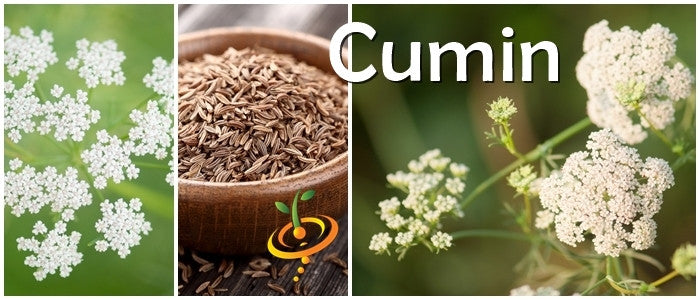
Cumin is an aromatic herb with feathery foliage and small pinkish flowers. The seeds are used as a spice, both whole and powdered, and is second only to black pepper as the most popular spice across all continents. Its earthy, nutty, slightly bitter flavor is used extensively in traditional North African, Indian, and Mexican cuisines. Thrives in hot, dry conditions. The leaves and flowers are also edible, and can be used to add unique flavor to salads and pickling brines.
- Earthy, nutty, flavor
- Heat and drought tolerant
- Grows 8"-12" tall
- Good for containers
As a companion plant, it attracts pollinators and beneficial insects.
As a medicinal herb, Cumin seed has been used internally to treat bloating, colic, cough, fever, flatulence, headache, indigestion, insomnia, pain, restlessness, stomach upset, and weight issues, and externally to treat skin problems and toothache.
SEED PLANTING TIPS
- Botanical name: Cuminum cyminum
- Life cycle: Herbaceous annual
- Hardiness zones: 5-10
- Planting season: Spring
- Days to maturity: 120-150 days; can begin harvesting when 6" tall
- Depth to plant seeds: 1/4" deep
- Days to germinate (sprout): 7-14 days
- Germination soil temps: 68F-86F
- Spacing between plants: 4"-6" apart
- Spacing between rows: 18"-24" apart
- # of plants per sq. ft.: Appx. 9 plants per sq. ft.
- Soil types: Sandy, loamy, rich, dry, moist, well-drained
- Soil pH: 6.5-8.0
- Sun needs: Full sun
- Water needs: Low - do not overwater
- Cold stratify: No
- Frost tolerant: No
- Heat tolerant: Yes
- Drought tolerant: Yes
- Deer resistant: Yes
- Culinary use: Yes
- Medicinal use: Yes
⚠️ Medicinal properties are presented as information only, and are not a recommendation or prescription for use. Consult a medical professional before using any herb medicinally.
See Cumin Recipes & Growing Tips on our Pinterest Board
Follow SeedsNow.com's board Cumin on Pinterest. - From $399 USDUnit price /Unavailable
Description

- The Fenugreek plant produces extremely flavorful seeds which are widely used in many Indian dishes, including Curry powder
- The green leaves are used in many Middle Eastern vegetable dishes
- Fenugreek also has a long history of being used as a medicinal herb to aid in digestion and aid in healing
- Acts as a laxactive. lubricates the intestines, and reduces fevers. Has also been shown to lower cholesterol and blood sugar levels. Helps with asthma and sinus issues by reducing mucus. Promotes lactation in nursing mothers. Good for eyes and for inflammation and lung disorders.
- Days to Maturity | 75 days
Follow SeedsNow.com's board Fenugreek on Pinterest. - From $399 USDUnit price /Unavailable
Description

- Tarragon, aka Dragon Wort, is a popular herb widely recognized for its strong aroma and many culinary uses.
- A native herb of Europe
- Used to compliment to many classic continental – mostly French – dishes
- Tarragon seeds should be planted in a warm and sunny spot
- Grows well in containers
- Tarragon is perfect for seasoning chicken, fish, and egg dishes
- Days to Maturity | 85 days
- Tarragon, aka Dragon Wort, is a popular herb widely recognized for its strong aroma and many culinary uses.
- From $299 USDUnit price /Unavailable
Description

Evergreen Parsley Seeds
(100% Heirloom/Non-Hybrid/Non-GMO)- Dark green curly parsley leaves.
- Can withstand frost and cooler temps better than the other varieties.
- Use this parsley for garnishing, and culinary decoration.
-
Day to Maturity | 70 days
- Planting Guide | Sow directly in your garden and space seeds 7" apart. Seeds can take a while to sprout. Can take 3-4 weeks before seedlings appear. Plant will grow to about 10" tall in about 60 days.

Additional DetailsParsley is a commonly grown culinary and medicinal herb that is often used as a domestic medicine. The fresh leaves are highly nutritious and can be considered a natural vitamin and mineral supplement in their own right. The plants prime use is as a diuretic where it is effective in ridding the body of stones and in treating jaundice, dropsy, cystitis etc. It is also a good detoxifier, helping the body to get rid of toxins via the urine and therefore helping in the treatment of a wide range of diseases such as rheumatism
- Dark green curly parsley leaves.
- From $299 USDUnit price /Unavailable
Description
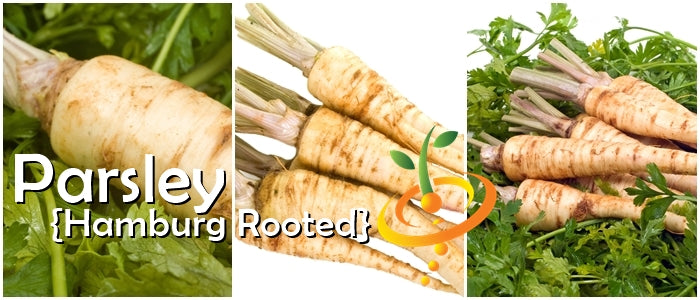
-
A very old heirloom variety dating back to the 1600's
- Hamburg Rooted Parsley is used differently than other parsley plants. It's actually preferred by many European cooks and is typically the main ingredient for many stews
- Hamburg Rooted Parsley is a large edible root with smooth mild parsley flavor
- Very easy to grow
- In Europe root parsley is usually the first choice over parsnips
-
Day to Maturity | 85 days
-
A very old heirloom variety dating back to the 1600's
Angelica (Wild Celery / Holy Ghost)
From $099 USDUnit price /UnavailableDescription
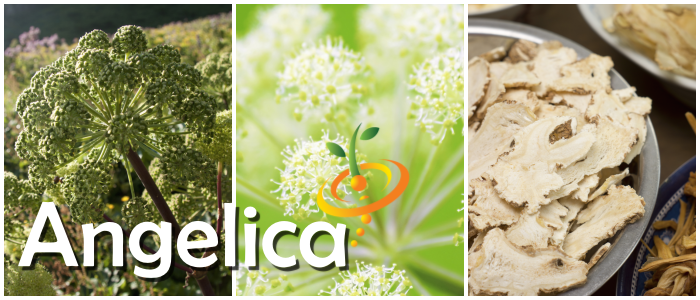
Angelica (Angelica archangelica), also called Wild Celery and Holy Ghost, is a fragrant herb in the carrot family. Like a carrot, it’s a biennial that flowers the second year, and it has a long thick root. But it’s not a carrot. For starters, it tastes like licorice. And the plant can grow to 4'-6' tall. It prefers cooler weather and growing near running water, so congrats if you’re gardening along the riverbanks of Utopia. The rest of us can just grow it in dappled shade and make sure the soil doesn’t dry out.
The flowers, leaves, seeds, stems, and roots are all edible. Peel the young, hollow, purple-tinged stems and use like celery, use the leaves like spinach, or make a tea from the leaves, flowers, seeds, and roots.
As a medicinal herb, Angelica has been used to treat anxiety, bladder infections, bronchitis, colds, cough, fever, flatulence, indigestion, insomnia, heartburn, lack of appetite, poor circulation, respiratory issues, typhus, and upset stomach.
- Mild licorice flavor
- All parts are edible
- Culinary and medicinal
- Good fresh and cooked
As a companion plant, it attracts all sorts of friendly pollinators and beneficial insects.
⚠️ Medicinal properties are presented as information only, and are not a recommendation or prescription for use. Consult a medical professional before using any herb medicinally.
SEED PLANTING TIPS
- Botanical name: Angelica archangelica
- Life cycle: Herbaceous biennial
- Hardiness zones: 4-8
- Planting season: Spring, fall
- Days to maturity: 1-2 years; can begin harvesting when 6" tall
- Depth to plant seeds: Lightly cover - seeds need light to germinate
- Days to germinate (sprout): 14-28 days
- Germination soil temps: 60F-65F
- Spacing between plants: 18"-24" apart
- Spacing between rows: 24"-36" apart
- # of plants per sq. ft.: Appx. 1 plant per 2 sq. ft.
- Soil types: Clay, sandy, loamy, silty, moist, well-drained
- Soil pH: 4.5-7.4
- Sun needs: Full sun, part shade
- Water needs: High - keep soil moist
- Cold stratify: Yes
- Frost tolerant: Yes
- Heat tolerant: No
- Drought tolerant: No
- Deer resistant: No
- Culinary use: Yes
- Medicinal use: Yes
- From $199 USDUnit price /Unavailable
Description

Soapwort (Saponaria officinalis) is a beautiful, robust perennial in the carnation family with dark green lance-shaped leaves and light pink star-shaped flowers that have a pleasant floral clove scent. Can grow 1'-2' tall and 12"-18" wide, and prefers cooler weather. The entire plant contains saponins, with the highest concentration in the roots, which make a gentle foamy lather when mixed with warm water, and is used as detergent or soap to clean skin, hair, and delicate fabrics. Also called Bouncing Bet, a historical expression for a laundry woman. Reseeding and runner roots enable it to spread easily and it can become invasive.As a medicinal plant, Soapwort has been used internally to treat bronchitis, colds, cough, diarrhea, kidney stones, and respiratory problems, and externally to treat acne, boils, burns, eczema, inflammation, itchy skin, muscle pain, poison ivy, psoriasis, rash, and wounds.
⚠️ Toxic to people, pets, and livestock if ingested in large quantities. Toxic to fish, so do not grow near waterways. Do not ingest while pregnant or nursing.
⚠️ Medicinal properties are presented as information only, and are not a recommendation or prescription for use. Consult a medical professional before using any plant medicinally.
- Life cycle: Herbaceous perennial
- Bloom season: Summer
- Attracts: Hummingbirds, bees, butterflies, and other pollinators
- Flower meaning: Innocence, pure love
SEED PLANTING TIPS
- Botanical name: Saponaria officinalis
- Hardiness zones: 3-9
- Planting season: Spring, fall
- Days to maturity: 85 days-2 years
- Cold stratify: Yes
- Depth to plant seeds: Lightly cover - seeds need light to germinate
- Days to germinate (sprout): 7-28 days
- Germination soil temps: 60F-70F
- Spacing between plants: 12"-18" apart
- Soil types: Clay, sandy, loamy, silty, rocky, chalky, poor, average, moist, well-drained
- Soil pH: 6.6-7.8
- Water needs: Average
- Sun needs: Full sun, part shade
- Frost tolerant: Yes
- Drought tolerant: Yes
- Deer resistant: Yes
- From $299 USDUnit price /Unavailable
Description
Greek Basil is a small-leaf dwarf variety that grows into a tight dome, about 1’ tall and wide. A great one for containers, hanging baskets, and indoor gardens. The bright green, oval leaves and soft stems have hints of clove and anise, and keep their flavor when dried. Use this variety to flavor herb butters and vinaigrettes, and the edible flowers as a garnish or salad green.Harvest the leaves and stems from the top part of the plant, and pinch off edible flower buds as they appear, which prevents the leaves from turning bitter, and signals the plant to branch out and grow more leaves, making a bushier plant.
The more you harvest, the more it grows!
- Basil-clove-anise flavor
- Compact plant
- Good for indoor gardens
- Good for containers
- Tons of medicinal benefits!
As a medicinal herb, Basil has been used internally to treat anxiety, colds, colic, cough, depression, diarrhea, fever, flatulence, flu, indigestion, insomnia, intestinal parasites and worms, exhaustion, gastric pain, gonorrhea, lactation problems, migraine headache, nausea, stomach cramps, sore throat, and vomiting, and externally to treat acne, insect bites and stings, loss of smell, skin problems, snake bites.
⚠️ Do not use medicinally while pregnant.
⚠️ Medicinal properties are presented as information only, and are not a recommendation or prescription for use. Consult a medical professional before using any herb medicinally.
As a companion plant, it attracts hummingbirds, pollinators, and beneficial insects, and repels asparagus beetles, cabbage moths, cabbage white butterfly, cabbage worms, carrot rust fly, flies, maggots, mice, mosquitoes, spider mites, thrips, and tomato hornworms.
Shop all Basil Seeds Shop Good Companion Plants for Basil 📚 Grow Guide: Basil


See Basil Recipes & Growing Tips on our Pinterest Board
Shop all Basil Seeds Shop Good Companion Plants for Basil 📚 Grow Guide: Basil - From $299 USDUnit price /Unavailable
Description
Lemon Basil, also called Hoary Basil (for its fuzzy stems), is a hybrid cross between traditional basil and lime basil.The bright green leaves have a sweet lemony aroma and a tangy lemon-anise flavor that’s best used fresh in seafood dishes, fruit salads, lemonade, cocktails, and salad dressings. Add at the end of cooking to preserve the citrus flavor, then garnish with the edible flowers.
Harvest the leaves and stems from the top part of the plant, and pinch off edible flower buds as they appear, which prevents the leaves from turning bitter, and signals the plant to branch out and grow more leaves, making a bushier plant.
The more you harvest, the more it grows!
- Tangy lemon-anise flavor
- Culinary and medicinal
- Good for indoor gardens
- Good for containers
- Tons of medicinal benefits!
As a medicinal herb, Basil has been used internally to treat anxiety, colds, colic, cough, depression, diarrhea, fever, flatulence, flu, indigestion, insomnia, intestinal parasites and worms, exhaustion, gastric pain, gonorrhea, lactation problems, migraine headache, nausea, stomach cramps, sore throat, and vomiting, and externally to treat acne, insect bites and stings, loss of smell, skin problems, snake bites.
⚠️ Do not use medicinally while pregnant.
⚠️ Medicinal properties are presented as information only, and are not a recommendation or prescription for use. Consult a medical professional before using any herb medicinally.
As a companion plant, Basil attracts hummingbirds, pollinators, and beneficial insects, and repels asparagus beetles, cabbage moths, cabbage white butterfly, cabbage worms, carrot rust fly, flies, maggots, mice, mosquitoes, spider mites, thrips, and tomato hornworms.
Shop all Basil Seeds Shop Good Companion Plants for Basil 📚 Grow Guide: Basil
Health Benefits of Lemon Basil
Basil is a known health tonic for expecting mothers and when mixed with tea it increases lactation in mothers. It is also a nerve tonic and young children are sometimes encouraged to chew on the leaves of basil because it stimulates brain cells and can increase memory.

See Basil Recipes & Growing Tips on our Pinterest Board
Shop all Basil Seeds Shop Good Companion Plants for Basil 📚 Grow Guide: Basil - From $299 USDUnit price /Unavailable
Description
Let us tell you about Lettuce Leaf Basil. It’s a lovely Italian basil that grows huge leaves as big as your hand, with a flavor that’s sweeter and less spicy than other basils. Its crinkles hold onto dressing in salads, you need only one leaf for a sandwich or wrap, and you can use the rest as you would any other basil. Save the edible flower spikes to garnish seafood dishes and cocktails.Harvest the leaves and stems from the top part of the plant, and pinch off edible flower buds as they appear, which prevents the leaves from turning bitter, and signals the plant to branch out and grow more leaves, making a bushier plant. The more you harvest, the more it grows!
- Sweet and mild
- Huge 5"-6" leaves
- Grows 1'-2' tall
- Good for containers
- Tons of medicinal benefits!
As a medicinal herb, Basil has been used internally to treat anxiety, colds, colic, cough, depression, diarrhea, fever, flatulence, flu, indigestion, insomnia, intestinal parasites and worms, exhaustion, gastric pain, gonorrhea, lactation problems, migraine headache, nausea, stomach cramps, sore throat, and vomiting, and externally to treat acne, insect bites and stings, loss of smell, skin problems, snake bites.
⚠️ Do not use medicinally while pregnant.
⚠️ Medicinal properties are presented as information only, and are not a recommendation or prescription for use. Consult a medical professional before using any herb medicinally.
As a companion plant, Basil attracts hummingbirds, pollinators, and beneficial insects, and repels asparagus beetles, cabbage moths, cabbage white butterfly, cabbage worms, carrot rust fly, flies, maggots, mice, mosquitoes, spider mites, thrips, and tomato hornworms.
Shop all Basil Seeds Shop Good Companion Plants for Basil 📚 Grow Guide: Basil
Health Benefits of Genovese Basil
Basil is a known health tonic for expecting mothers and when mixed with tea it increases lactation in mothers. It is also a nerve tonic and young children are sometimes encouraged to chew on the leaves of basil because it stimulates brain cells and can increase memory.

See Basil Recipes & Growing Tips on our Pinterest Board
Shop all Basil Seeds Shop Good Companion Plants for Basil 📚 Grow Guide: Basil - From $299 USDUnit price /Unavailable
Description
- Annual plant
- Adds great flavor and color to many culinary creations
- 3 ft. plant with strongly aromatic foliage, stems, and heads
- Excellent for fresh pickling
-
Days to Maturity | 40 - 65 days
Additional Details
Dill has a very long history of herbal use going back more than 2,000 years. The seeds are a common and very effective household remedy for a wide range of digestive problems. An infusion is especially efficacious in treating gripe in babies and flatulence in young children. The seed is aromatic, carminative, mildly diuretic, galactogogue, stimulant and stomachic.
Other Medicinal Properties
Dill is also used in the form of an extracted essential oil. Used either in an infusion, or by eating the seed whole, the essential oil in the seed relieves intestinal spasms and griping, helping to settle colic. Chewing the seed improves bad breath. Dill is also a useful addition to cough, cold and flu remedies, it can be used with antispasmodics such as Viburnum opulus to relieve period pains. Dill will also help to increase the flow of milk in nursing mothers and will then be taken by the baby in the milk to help prevent colic.
See Dill Recipes & Growing Tips on our Pinterest Board
Follow SeedsNow.com's board Dill on Pinterest. Shungiku, Edible Chrysanthemum
From $399 USDUnit price /UnavailableDescription
- Shungiku, Edible Chrysanthemum is a very versatile asian green
- Known as Shungiku, Edible Chrysanthemum, Garland Chrysanthemum, Chop Suey Greens and many other names
- This is a salad green that can be grown in winter and again in spring
- The flowers of Shungiku can be dried and stored to be used for tea. Often considered a substitute for Chamomile - with its soothing and stomach quieting properties
-
Days to Maturity | 30 - 50 days
- Shungiku, Edible Chrysanthemum is a very versatile asian green
- From $299 USDUnit price /Unavailable
Description
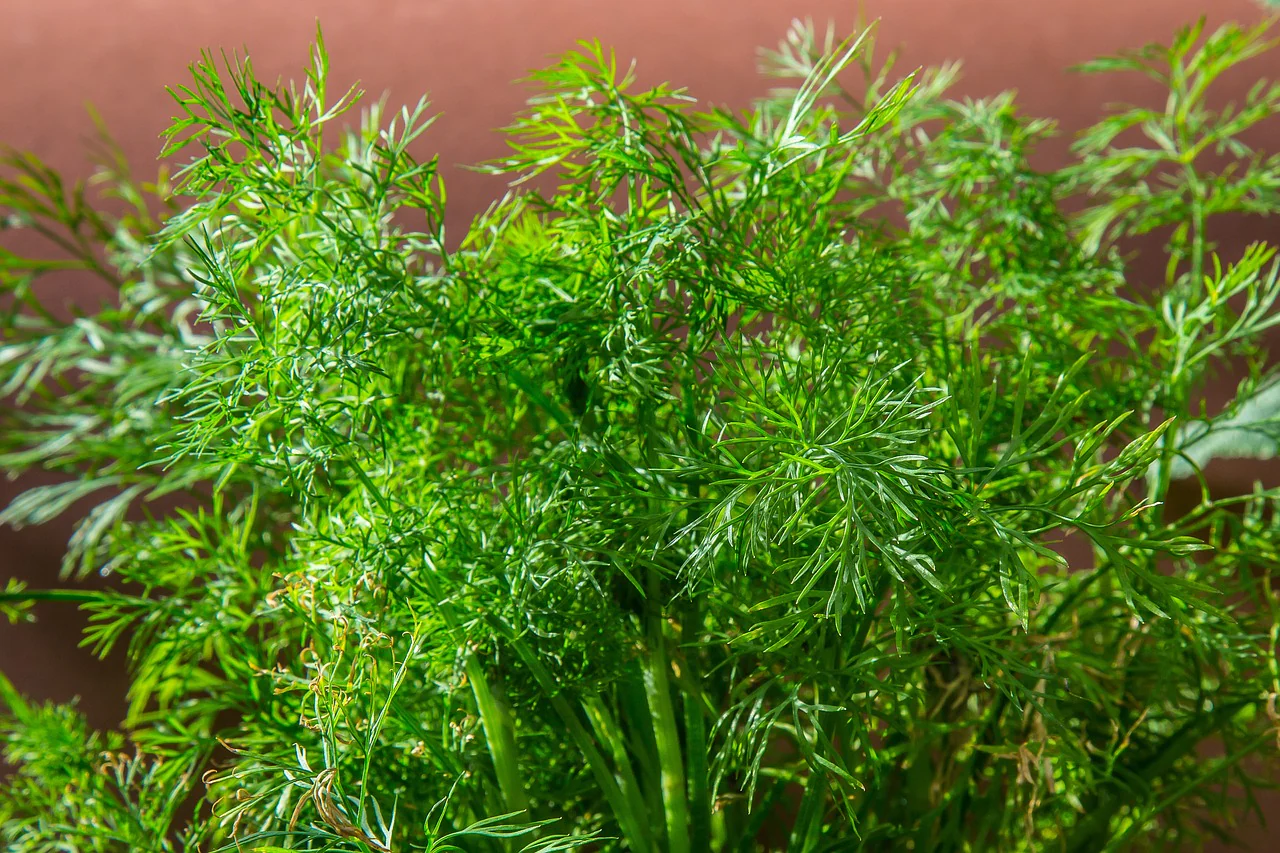
- Dukat dill is a particularly fine plant with amazing flavor and large heads. If you like dill you will love to try this new variety in your garden
- This variety is darker than most other dill varieties.
- Excellent fresh or dried.
- Grown for homemade dill pickles.
- Can be grown in containers, raised beds, and any other location in full sun.
- Annual plant.
- Adds great flavor and color to many culinary creations.
Additional Details
Dill has a very long history of herbal use going back more than 2,000 years. The seeds are a common and very effective household remedy for a wide range of digestive problems. An infusion is especially efficacious in treating gripe in babies and flatulence in young children. The seed is aromatic, carminative, mildly diuretic, galactogogue, stimulant and stomachic.
Other Medicinal Properties
Dill is also used in the form of an extracted essential oil. Used either in an infusion, or by eating the seed whole, the essential oil in the seed relieves intestinal spasms and griping, helping to settle colic. Chewing the seed improves bad breath. Dill is also a useful addition to cough, cold and flu remedies, it can be used with antispasmodics such as Viburnum opulus to relieve period pains. Dill will also help to increase the flow of milk in nursing mothers and will then be taken by the baby in the milk to help prevent colic.
See Dill Recipes & Growing Tips on our Pinterest Board
Follow SeedsNow.com's board Dill on Pinterest. - Dukat dill is a particularly fine plant with amazing flavor and large heads. If you like dill you will love to try this new variety in your garden
continue shopping
YOU MAY ALSO LIKE
View all-
$27999 USD
$29999Unit price /Unavailable -
All-in-One Heritage Tomato Garden Variety Pack
$3999 USD$4499Unit price /Unavailable -
All-in-One Mosquito Repellent Garden Variety Pack
$3999 USDUnit price /Unavailable -
All-in-One Medicinal Herb Garden Seed Bank
$9999 USDUnit price /Unavailable -
All-in-One Pepper Garden Variety Pack
$3999 USDUnit price /Unavailable -
All-in-One Chicken Garden Variety Pack
$3999 USDUnit price /Unavailable -
All-in-One Lettuce & Leafy Greens Variety Pack
$3999 USDUnit price /Unavailable -
All-in-One Culinary Herb Garden Variety Pack
$3999 USDUnit price /Unavailable -
All-in-One Homestead Seed Bank
$9999 USDUnit price /Unavailable -
All-in-One Medicinal Herb Garden Variety Pack
$4999 USDUnit price /Unavailable -
All-in-One Root Crop Garden Variety Pack
$3999 USDUnit price /Unavailable -
All-in-One Fall/Winter Variety Pack
$3999 USDUnit price /Unavailable -
All-in-One Sprouts/Microgreens Variety Pack
$3499 USDUnit price /Unavailable -
All-in-One Hydroponic Greens Variety Pack
$3999 USDUnit price /Unavailable -
All-in-One Fall/Winter Seed Bank
$8999 USDUnit price /Unavailable -
All-in-One Sprouts/Microgreens Seed Bank w/Sprouting Jar
$6999 USD$7999Unit price /Unavailable -
All-in-One Culinary Herb Garden Seed Bank
$8999 USDUnit price /Unavailable -
All-in-One Spring/Summer Seed Bank
$8999 USDUnit price /Unavailable -
All-in-One Urban Garden Variety Pack
$3999 USDUnit price /Unavailable -
All-in-One Cucumber Garden Variety Pack
$2999 USDUnit price /Unavailable -
*NEW!* Wildflower Scatter Garden Variety Pack
$3999 USDUnit price /Unavailable -
All-in-One SAVE THE BEES! Garden Variety Pack
$3999 USDUnit price /Unavailable -
All-in-One Salsa Garden Variety Pack
$3999 USDUnit price /Unavailable -
All-in-One Tower Garden Variety Pack
$3999 USDUnit price /Unavailable
FEATURED COLLECTIONS
View allcontinue shopping





